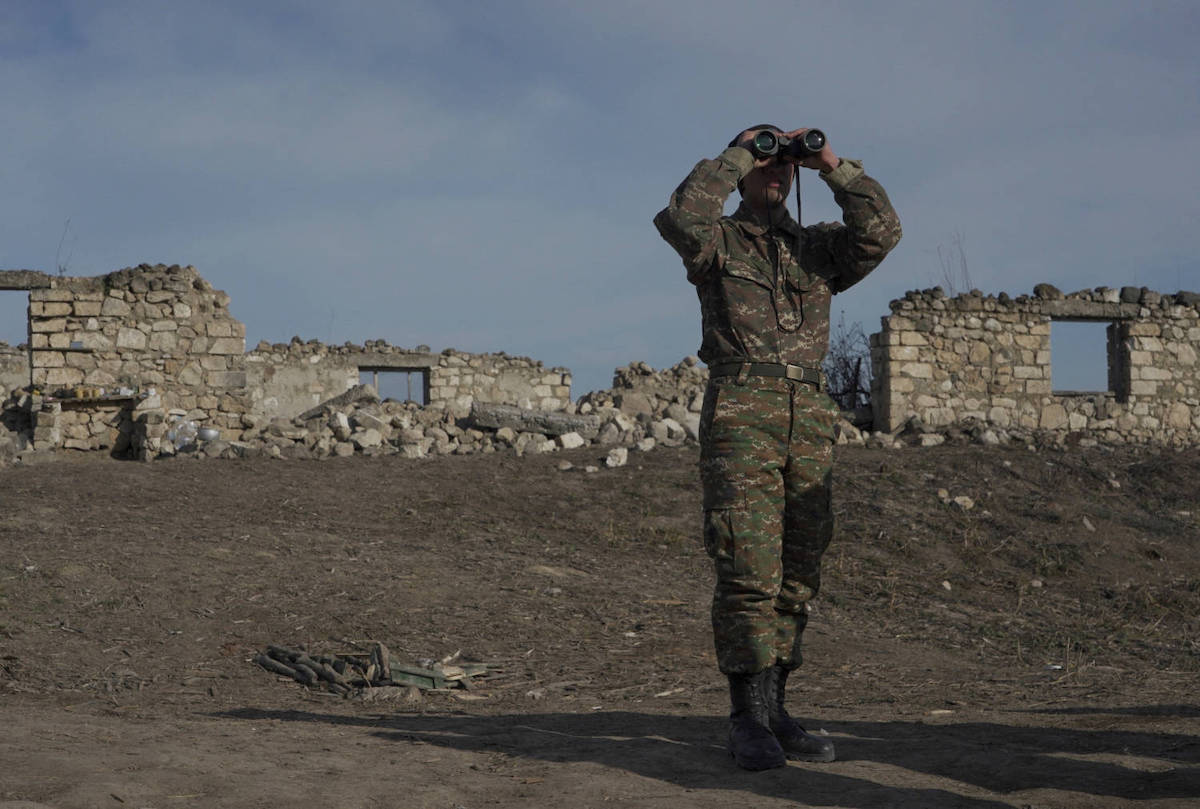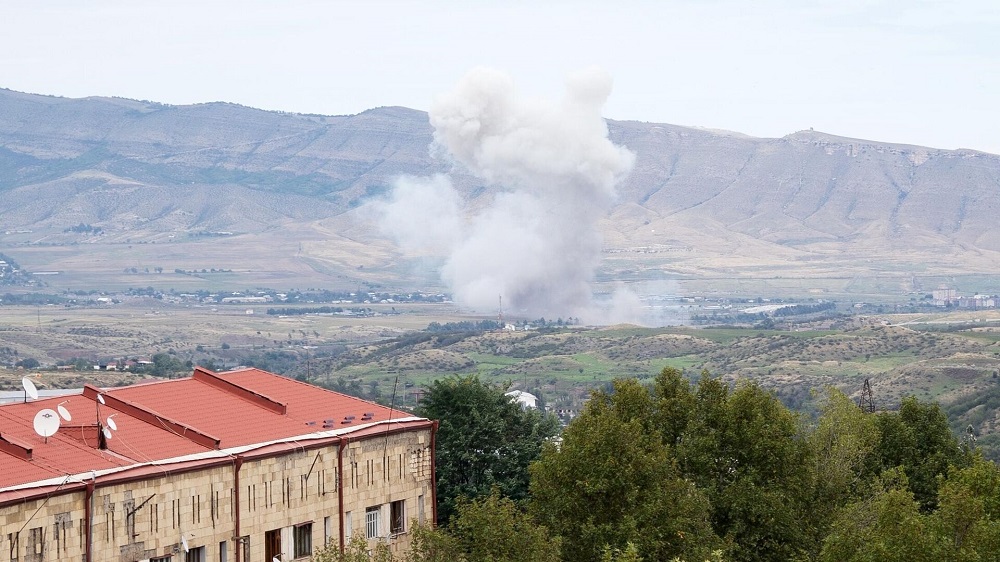What will happen to peacekeepers in Karabakh? Opinion from Baku
What will happen to peacekeepers in Karabakh
After the counter-terrorist operation of the Azerbaijani Armed Forces in Karabakh on September 19-20, the country fully ensured its territorial integrity. But at the same time the question of relevance of the presence of the Russian peacekeeping contingent in the region has arisen due to the absence of the subject of its authority. “Except for the Lachin road, almost all the RMK posts have lost their significance,” notes Azerbaijani political scientist Farhad Mammadov.
- “Armenia will receive our brothers and sisters leaving NK” – Pashinyan
- Reintegration of Karabakh Armenians. “This is fantastic!”
- “Evacuate all NK residents to Armenia. There is no other way.” Opinion
“Along the line of contact in Nagorno-Karabakh and along the Lachin corridor, a Russian peacekeeping contingent of 1,960 soldiers with small arms, 90 armored personnel carriers, 380 units of automotive and special equipment is being deployed,” reads the trilateral statement of November 10, 2020, signed by the leaders of Azerbaijan, Armenia and Russia.
After Azerbaijan regained control over the entire territory of Karabakh and the disarmament of Armenian armed forces in the region began, there was no line of contact, i.e. one of the subjects of control of the Russian peacekeeping contingent (RMK).
“Russia’s temporary stay in Karabakh remains in a mandate-less state. The RMK has one single function left, prescribed in the trilateral statement, on the Lachin road,” argues political scientist Farhad Mammadov.
According to him, along with this, over the past three years after the end of the second Karabakh war, the RCC has created its own logistics – a system of equipped, autonomous posts along the perimeter. “Everything else that has been implemented on the part of RMK is not prescribed functions, so to speak amateurish,” he added.
What happens after that?
“From the texts on the ceasefire it becomes clear that the RCC has acquired a new, but even more temporary, i.e. time-limited, function – participation in the disarmament of illegal Armenian formations, withdrawal of the remnants of the Armenian Armed Forces. All this will be completed within a few weeks.
Under the new conditions, RMK loses all logistics on the perimeter, as the Azerbaijani Armed Forces have already crossed this perimeter and there is no expediency to maintain these points. The maps show that except for the Lachin road almost all RMK posts have lost their importance.
So, the whole logistics of RMK on the territory of Azerbaijan is changing in accordance with the new realities.
Azerbaijan seeks to reintegrate the region, both the territory itself and the population. Baku is under pressure from the West on the topic of accusations of “ethnic cleansing”. The West is eager to get into the region, and does not hide it.
Azerbaijan does not want to see anyone on its territory after 2025 except Russia with Turkey as a limiter.
If anyone is concerned about the subject of Karabakh Armenians, there is the RCC on the ground, representatives of a permanent member country of the UN Security Council with veto power.
Also on the ground are the Turkish military in the joint Russian-Turkish monitoring center. The country is a NATO member, an ally of the West, after all….
RMK becomes a participant in the process of reintegration of Karabakh Armenians into Azerbaijan. This is stated at the level of Russian officials, we see it in real time”.
Where will Russia’s peacekeeping contingent move from their established posts?
“I will assume to the settlements, mainly in Khankendi. This does not mean that in these settlements there will not be the flag of Azerbaijan and the laws and state structures of the Republic of Azerbaijan will not operate. They will!
It takes time for adaptation, as well as creation of appropriate infrastructure, logistics, which is being created in an intensified mode.
Reintegration did not start gradually, as Baku wanted, but started within one day and after the military events. Therefore temporary measures and prioritization of topics are needed. For today it is disarmament of local Armenians, withdrawal of the remnants of the Armed Forces from the territory of Azerbaijan, improvement of humanitarian situation, supply of Azerbaijani infrastructure for resources.
The activity of state structures, the spread of the legal field of Azerbaijan are systemic topics that will find their solution and the role of the RCC in this sense is important from the point of view of leveling the clashes that can lead to local confrontations. This is expected in the West and the negative influence of the West should also be neutralized. I assume that Turkey’s role in this regard will be more tangible.
The change of RCC’s logistics shows that all RCC’s activities will be jointly with Azerbaijan and in the context of reintegration of the Armenian population of Karabakh into Azerbaijan,” Farhad Mammadov concluded.




















